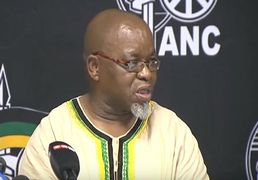THE Western Cape is to embark on a review of its entities to cut duplication and has established an academy for chartered accountants to create a pipeline of professionals for the provincial government.
These are some of the measures Western Cape MEC for finance Ivan Meyer detailed on Thursday in the province’s R55bn budget that will help it speed up efforts to cut repetition and slash expenditure.
Mr Meyer said: "Minister Pravin Gordhan has a partner in the Western Cape to create fiscal consolidation. He needs more partners."
The province would implement a strategy to limit and control expenditure on personnel, he said.
"The provincial cabinet has agreed on upper limits for (the) cost of employees. These will be earmarked … (and) the focus will be on an appropriate mix between critical frontline staff and back-office support," said Mr Meyer.
The Western Cape’s economy is forecast to expand 1% this year and 1.8% in 2017.
Education and health, in line with national spending priorities, have taken the lion’s share of the Western Cape’s budget.
The provincial health department has been allocated nearly R20bn while education will receive R19.2bn. Transport and public works (roughly R6.8bn), human settlements (R2.2bn) and social development (about R2bn) are the other key spending priorities.
Agriculture will get R788m. The province will invest R26.7bn in infrastructure over the 2016 medium-term expenditure framework, Mr Meyer said.
About R50.5m would be allocated to the removal of barriers to starting businesses, and skills development programmes would also get funding, he said.
The provincial treasury had established a Chartered Accountants Academy to provide an avenue for prospective professionals to receive accredited training in the public sector. These will in time take up positions in the province’s departments and municipalities.
African National Congress Western Cape finance spokeswoman Carol Beerwinkel said: "The claims of serving the poor rang hollow at the introduction of (this) ‘growth’ budget as it failed to show how the poor will benefit."

Cape Town at night. Picture: THE TIMES
THE Western Cape is to embark on a review of its entities to cut duplication and has established an academy for chartered accountants to create a pipeline of professionals for the provincial government.
These are some of the measures Western Cape MEC for finance Ivan Meyer detailed on Thursday in the province’s R55bn budget that will help it speed up efforts to cut repetition and slash expenditure.
Mr Meyer said: "Minister Pravin Gordhan has a partner in the Western Cape to create fiscal consolidation. He needs more partners."
The province would implement a strategy to limit and control expenditure on personnel, he said.
"The provincial cabinet has agreed on upper limits for (the) cost of employees. These will be earmarked … (and) the focus will be on an appropriate mix between critical frontline staff and back-office support," said Mr Meyer.
The Western Cape’s economy is forecast to expand 1% this year and 1.8% in 2017.
Education and health, in line with national spending priorities, have taken the lion’s share of the Western Cape’s budget.
The provincial health department has been allocated nearly R20bn while education will receive R19.2bn. Transport and public works (roughly R6.8bn), human settlements (R2.2bn) and social development (about R2bn) are the other key spending priorities.
Agriculture will get R788m. The province will invest R26.7bn in infrastructure over the 2016 medium-term expenditure framework, Mr Meyer said.
About R50.5m would be allocated to the removal of barriers to starting businesses, and skills development programmes would also get funding, he said.
The provincial treasury had established a Chartered Accountants Academy to provide an avenue for prospective professionals to receive accredited training in the public sector. These will in time take up positions in the province’s departments and municipalities.
African National Congress Western Cape finance spokeswoman Carol Beerwinkel said: "The claims of serving the poor rang hollow at the introduction of (this) ‘growth’ budget as it failed to show how the poor will benefit."




























Change: -0.47%
Change: -0.57%
Change: -1.76%
Change: -0.34%
Change: 0.02%
Data supplied by Profile Data
Change: -1.49%
Change: 0.08%
Change: -0.47%
Change: 0.00%
Change: -0.04%
Data supplied by Profile Data
Change: -0.34%
Change: 0.03%
Change: -0.10%
Change: -0.22%
Change: -0.69%
Data supplied by Profile Data
Change: -0.28%
Change: -1.15%
Change: -0.07%
Change: -1.21%
Change: -0.22%
Data supplied by Profile Data